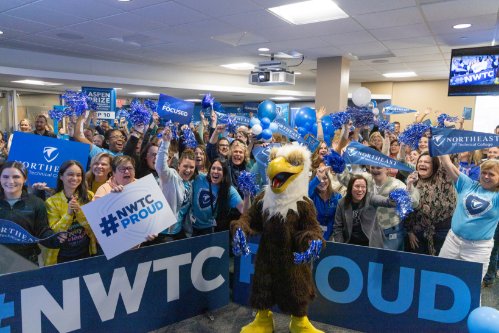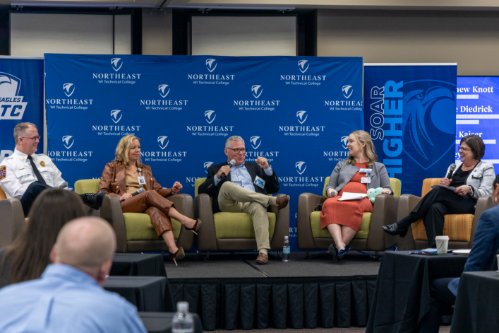Students from across the state will present their findings at the Tiny Earth in Titletown research symposium in the Lambeau Field Atrium on Friday, December 9 from 5 to 7:30 p.m. For the first time since 2019 the event will showcase the collaborative and innovative efforts of students across the state, working together to mitigate the global public health crisis of antibiotic resistance. Registration for this community-based symposium is free and open to the public.
Head of the Division of Infectious Disease within the Department of Medicine, as well as the Department of Microbiology and Immunology at the University of Wisconsin School of Medicine and Public Health, Dr. David Andes, will kick off the symposium and discuss the crisis and innovative solutions to address it.
It’s been three years since the last Tiny Earth in Titletown, hosted by a committee of Tiny Earth Instructors at the University of Wisconsin-Green Bay, Northeast Wisconsin Technical College, College of Menominee Nation, and St. Norbert University.
Wisconsin students, including UW-Green Bay, NWTC, Green Bay West High School and more, join 14,000 other students from 300 other college and universities across 47 states and 30 countries, in some version of the Tiny Earth course. While uncovering new antibiotics is the end-goal, the discoveries made along the way are worth the effort. The course provides students of all backgrounds with the opportunity for original thinking and scientific exploration, inspiring the next generation of scientists and healthcare professionals.
UW-Green Bay Biology Prof. Brian Merkel, teacher of the course at UW-Green Bay and chair of the event, says the symposium is important on so many levels. “It’s a great opportunity to showcase the value of partnerships to mitigate large problems to a wide audience. For my part, Tiny Earth represents the realm of what is possible when innovative partnerships emerge for the greater good. The symposium wholly reflects the value of collaboration and service.”
Students get their own soil sample to test. They isolate bacteria and conduct gene sequence analysis. “The students realize they are part of something that’s bigger than themselves and they’re contributing to an international effort,” says Merkel. “This goes beyond a celebration of research. This is a visionary idea to help our students get excited about STEM careers while building an international network.”
“Many college students don’t get to participate in real life research cases, and this event allows students the experience to address and present on a worldwide issue,” said Angelo Kolokithas, NWTC program director of biology. “This is a great chance for the community to see what is happening within education to address a problem that impacts everyone; antibiotic resistance. The students also get a chance to educate the community on what we can all do to help fight this health crisis.”
Merkel said that without question, participation has often jump-started his students in paths toward research, medicine, and more. As the chair of Human Biology at UW-Green Bay and advisor to pre-health students, Merkel knows from experience that we need to inspire and prepare the next generation of scientists and healthcare professionals. “The Tiny Earth curriculum is exceptional in this respect while addressing a public health emergency.”
All people of all traditions and backgrounds have a vested interest in this global emergency. The partnership of students, educators, institutions of higher education and businesses throughout the region highlight the value of partnerships for the greater good in service to all communities.



